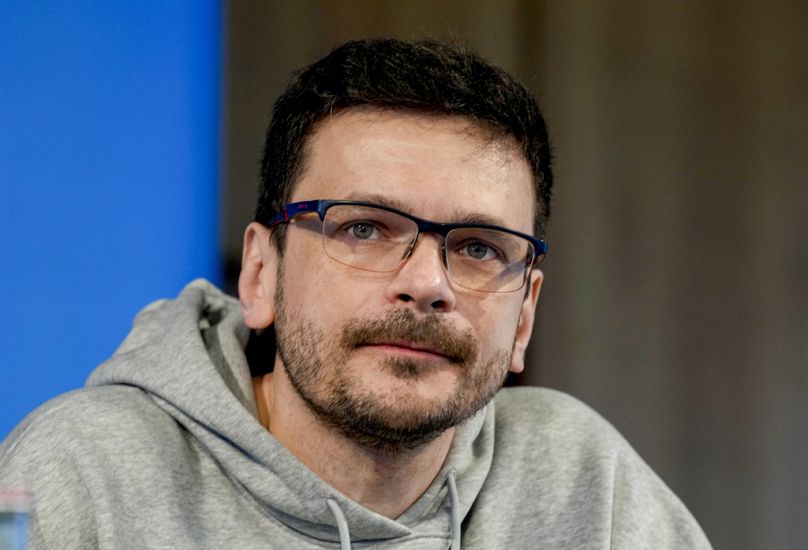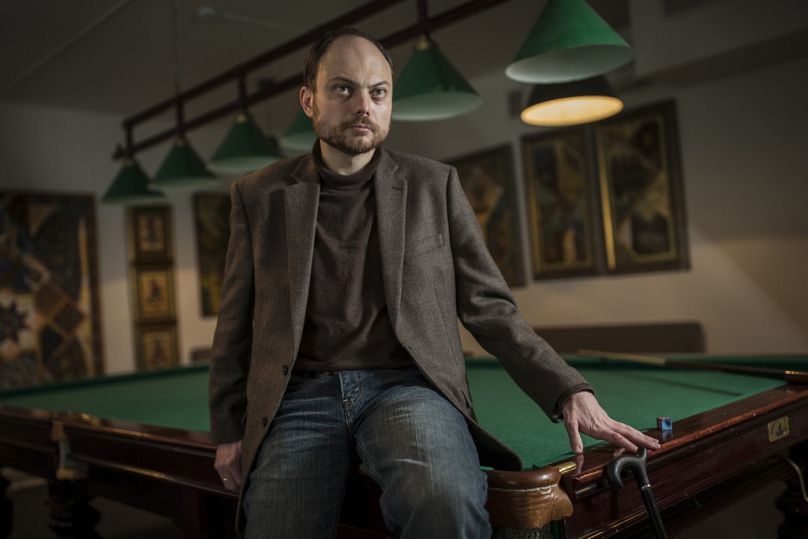Russian opposition figures involved in the prisoner swap between Russia and Western countries addressed the press in Bonn on Friday. Sharing their hopes for a different Russia and pledging to continue their activism.
Russian dissidents who were released in the biggest East-West prisoner swap since the Cold War held a press conference in Bonn, Germany, on Friday.
 ADVERTISEMENT
ADVERTISEMENT
 ADVERTISEMENT
ADVERTISEMENT
The prisoners, who had been released the day before, discussed the details of the swap, their feelings after the release and their plans for the future.
“Realising that you have been released because a murderer has been released is difficult,” said Ilya Yashin, a prominent opposition politician and Kremlin critic who was serving an eight-and-a-half-year sentence for criticising Russia’s war in Ukraine.
“I feel a very heavy burden because my comrades remain behind bars.”
Yashin, a former member of a Moscow municipal council, was one of the few well-known opposition activists to stay in Russia since their invasion of Ukraine.
He has said that he did not want to be exchanged, arguing that the voice of a Kremlin critic is more powerful in Russia than outside.
“Most of all I want to go home now. The first desire, when I found myself in Ankara, when I found myself in Germany, the first desire was to immediately go to the airport, get a ticket and return to Russia.”
Yashin added that the Russian intelligence officer who accompanied him on the flight to Ankara told him that if he returned to Russia, he would be arrested and “end his days like (Alexei) Navalny.”
He said that they all would “definitely continue to engage in political activities,” despite the risks.
The exchange presents a difficult dilemma, according to Yashin, as he believes it encourages Putin to take more hostages.
Vladimir Kara-Murza, a dual Russian-UK citizen and prominent opposition politician who was convicted of treason and other charges and sentenced to 25 years, said that, during over two years in prison he was able to talk to his family only three times.
“They are not only hitting us, they are also hitting our families. And they do this on purpose,” Kara-Murza said.
“We were pulled out of prison, put on a bus, loaded onto a plane and sent to Ankara,” he added, saying he had been exchanged by Russia among other prisoners without consent.
He stressed that hundreds of Russians remain in prison for opposing the war in Ukraine and urged them not to believe the Kremlin propaganda.
A columnist for The Washington Post, Kara-Murza was awarded the Pulitzer Prize this year.
Prior to the exchange, he was serving 25 years in a penal colony in the Siberian city of Omsk on a treason conviction widely seen as politically motivated after being arrested in April 2022.
Kara-Murza fell ill in 2015 and 2017 from near-fatal poisonings he blamed on the Kremlin, and his wife said his health deteriorated while in prison due to these poisonings.
During the first news conference since released, the political prisoners shared that they had refused to formally request Putin’s pardons.
Therefore, they argue they were expelled out of Russia against the constitution which bans deportations of Russian citizens without their consent.
"The day will surely come when Russia will become a free, normal, civilised European country and I have absolutely no doubt that this day will come. Let us do everything in our power to bring that day closer together," Kara-Murza argued.
Russia freed 15 people in the exchange, journalists, political activists, US and German nationals, most of whom have been jailed on charges widely seen as politically motivated.
In turn, eight people were handed back to Russia.












